Planning a camping trip may sound easy enough, but that's where you could be wrong! Buying the gear and finding a campsite is just the beginning - there are loads of other essential things to prepare too.
Today we're sharing the most important things to remember for your camping trip, including a handy packing list to ensure you have the best escape ever.
An essential guide to camping
1. Check the weather
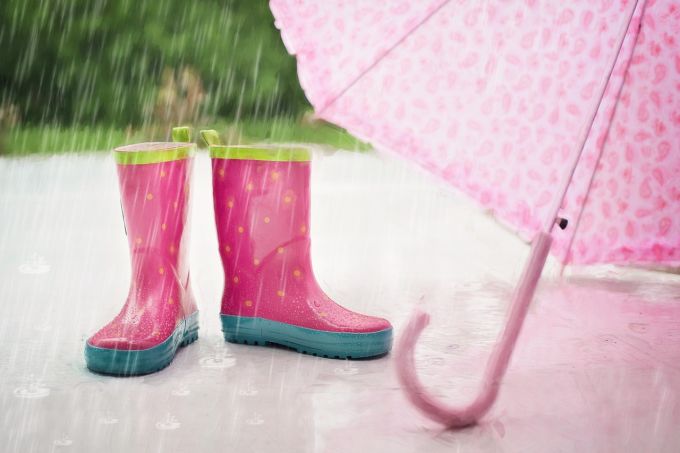
Before planning your trip, get an idea of the weather. If you're hoping to enjoy the great outdoors, it's best to avoid rainy or cold seasons.
Equally, you probably don't want to be camping at the height of summer, because tents can get seriously stuffy!
2. Plan your trip
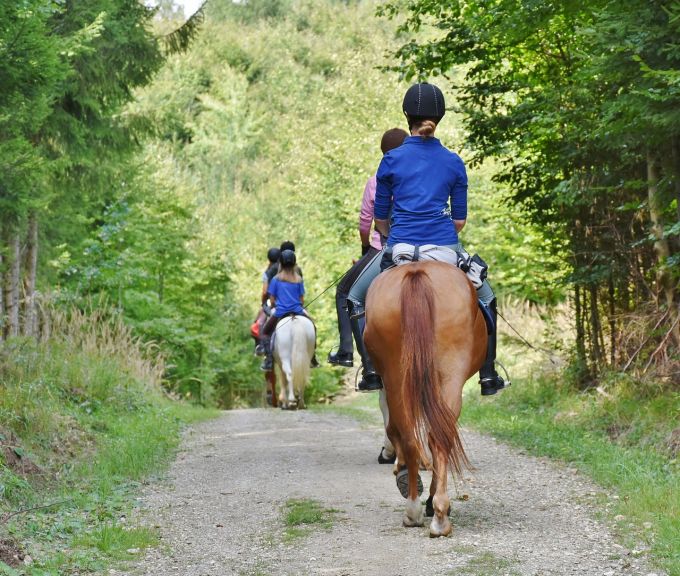
When choosing where to camp, think about what there is to do nearby. Whether you want to walk for miles, cycle or ride horses, see what's on offer in the local area.
You should also find out where the nearest shops or restaurants are - just in case! Having a bit of a plan or some ideas to fall back on will help you to get the most from your trip.
3. Test your gear before leaving
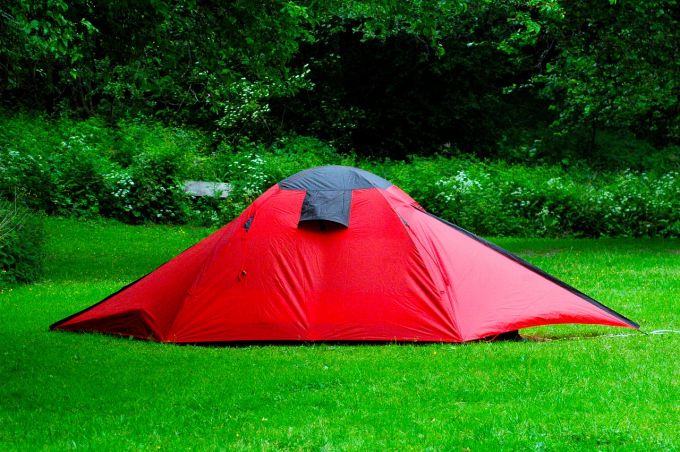
There's nothing more embarrassing than getting to your campsite and putting on a fighting match with your tent in front of all the other, more experienced campers.
Have a practice run at home with your tent and cooking equipment to make sure that you have all the pieces you need and you know exactly what you're doing.
4. Research your campsite
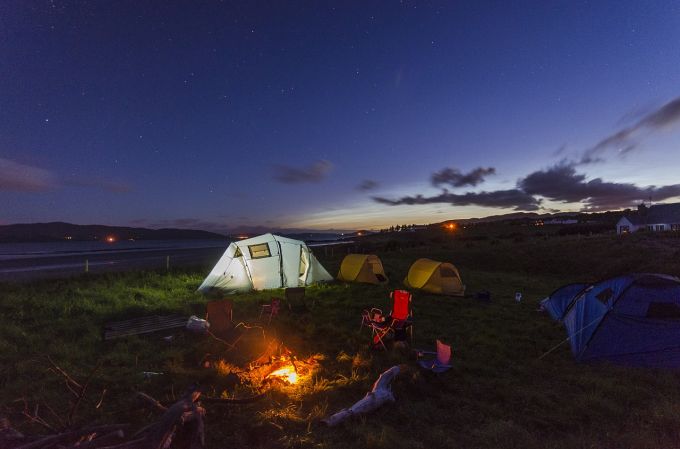
You should read as much information about your campsite as possible. Check the campsite rules to find out:
- What time is check in and check out?
- Can you light fires? Are barbecues allowed?
- Is there a quiet time period?
- Are children allowed to play ball games?
- Can you collect wood for fires?
- Can you bring a car onto the site? Is there a speed limit on site?
- Are there bathroom facilities?
- Is there somewhere to buy supplies?
- How big will your pitch be?
- Is there an electricity hook up? Can you bring a generator?
- Are dogs allowed? Must they be kept on a lead at all times?
- Can you hang things from trees?
- Is there somewhere to dispose of rubbish and recycling?
5. Have a digital detox
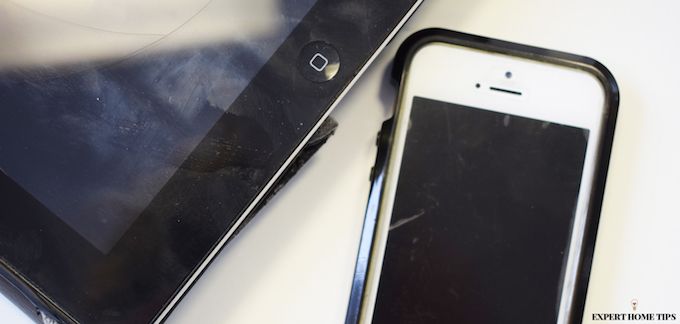
Addicted to technology? This is the perfect time to leave your phone behind and appreciate nature's beauty. It might even help reduce symptoms of depression, anxiety, and stress.
Find more ways to start your digital detox in our other article.
6. Try glamping
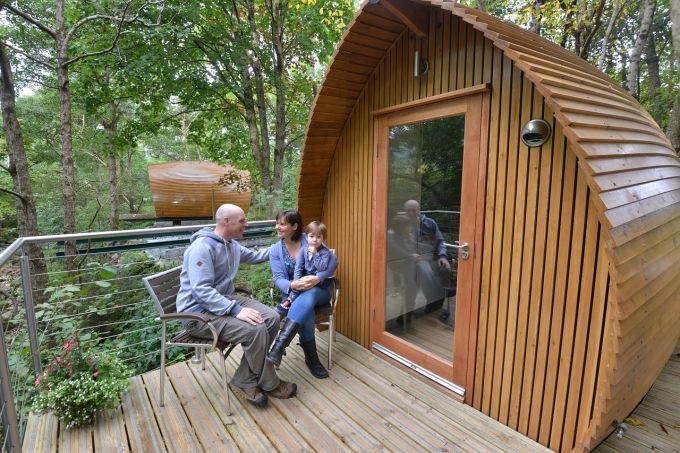
If you're new to the idea of camping and want to give it a try, glamping is a great place to start.
Everything you need should be provided for you, meaning you won't need to splash the cash on expensive equipment that you might never want to use again!
There are varying types of glamping including:
- Bell tents - suitable for larger groups. These normally have real beds and other household furniture to make your camping experience feel comfortable. The canvas material the tents are made from is much more breathable than your standard tent.
- Tree houses - possibly the most expensive glamping option, luxury tree houses are a childhood dream come true!
- Pre-pitched tents - some campsites might offer the option to rent all the equipment you need, including a pre-pitched tent. This will give you the authentic camping experience without the stress and expense.
- Campervans/ caravans - A small home with everything you need, on wheels!
- Pods - For a romantic break for two, why not book a glamping pod? Much cheaper than a hotel, sleeping under the stars in one of these luxurious and peaceful cabins is the way to go.
7. Seal food correctly
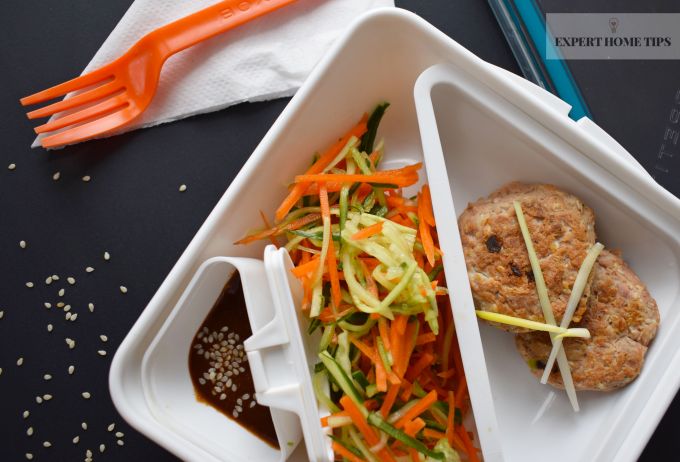
Wildlife won't think twice if you leave your food exposed! To avoid infestations, seal all your food properly. Don't leave rubbish lying around either.
8. Make a meal for your first night
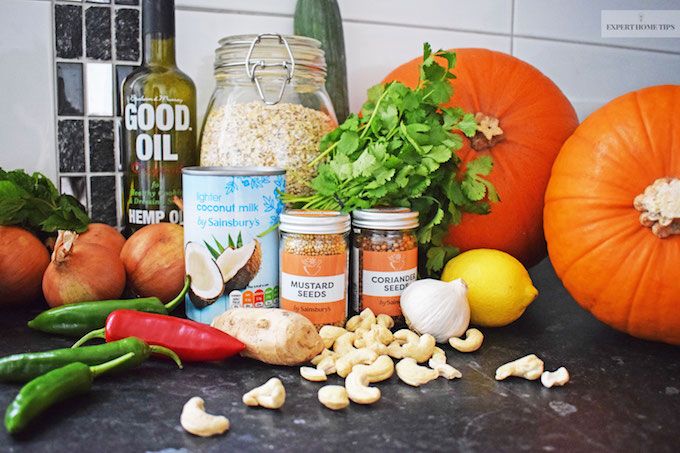
Make the first night a breeze by prepping your first meal before you leave. It doesn't have to be too fancy, but any prep work you can do will help. All you'll have to do is heat it up!
Check out The Adventure Bite's 101 stress-free camping food ideas for inspiration.
9. Be mindful of waste
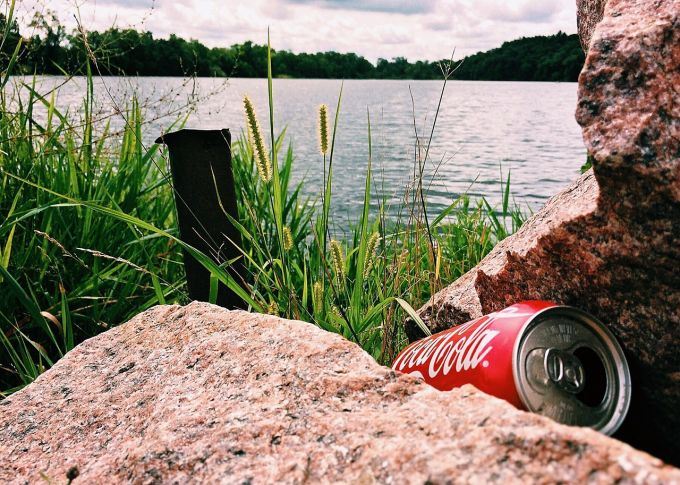
If you can, use reusable bottles and containers to reduce waste. Never be tempted to litter.
If you're buying and packing drinks, opt for cans and bottles that can be crushed for transportation and recycled. Avoid heavy glass bottles that will be hard work to carry about.
10. Keep kids occupied
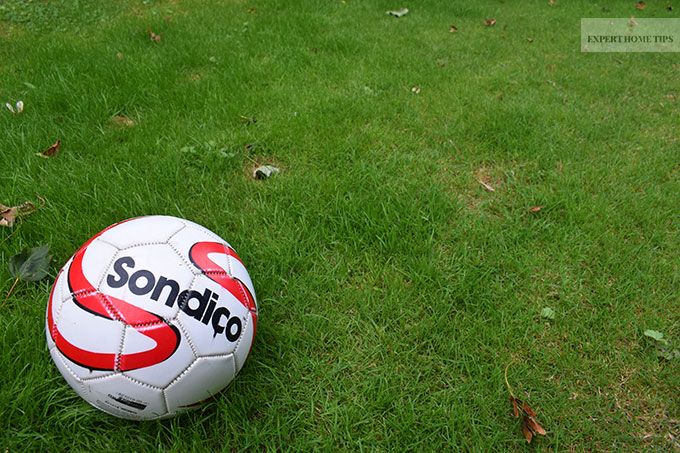
When planning a family camping trip, don't be fooled. Kids might not be entertained by the great outdoors for the whole trip.
If there's space, pack activity books and sports equipment. Be prepared to entertain them come rain or shine.
We know we said this was the opportunity for a digital detox, but it might not hurt to have tablets packed as a back up to watch TV or play games.
Make setting up and cleaning up the campsite part of the fun by challenging the kids to do certain tasks.
11. Leave only footprints
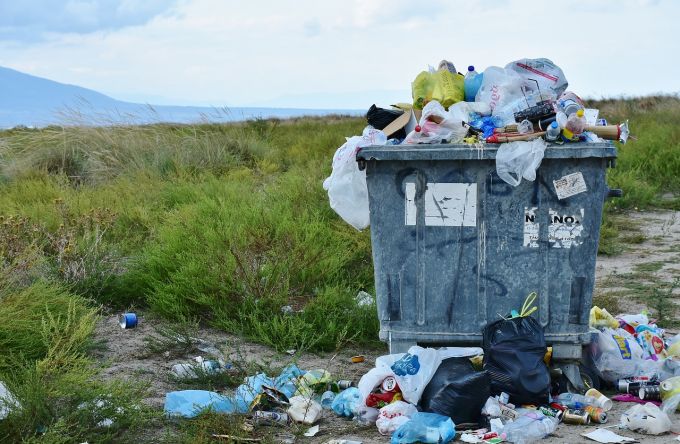
Always leave your pitch how you'd expect to find it. Remember that you're sharing your home with wildlife. Here are some ways to keep your camping eco-friendly:
- Bring rubbish bags to collect your waste.
- Dispose of all refuse and recycling properly - take it home with you if you can't do so on site.
- Keep lighting to a minimum so that you don't disturb wildlife.
- Avoid making open fires - check with the campsite if the rules permit it.
- Avoid single-use - bring reusable plates and cutlery where you can.
- Use solar energy - If you can't live without electricity, use solar to charge your stuff.
- Don't harm or alter nature - this includes moving bushes, breaking trees, picking plants, repositioning trails or rocks.
Packing list
1. Tent
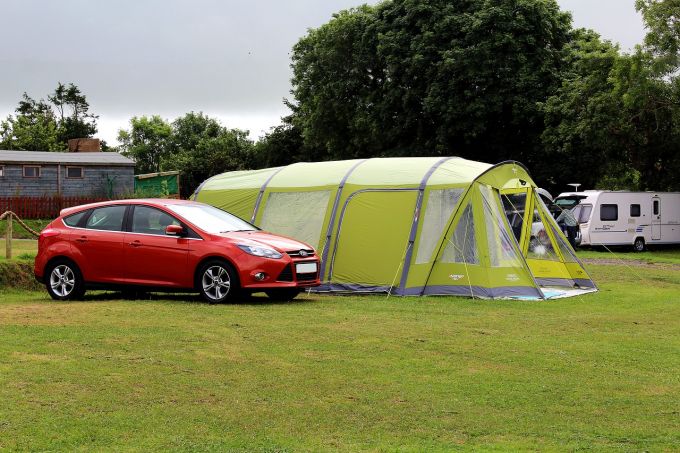
When choosing a tent, get the biggest one you can. You'll need enough space to sleep, store your food and cooking gear and for all the other bits and bobs you've packed. You don't want to be tripping over your belongings!
Opt for one with mosquito nets, an open porch for ventilated cooking in adverse weather and pockets for off-ground storage.
TOP TIP: On a budget? Borrow a tent from friends or buy one second-hand.
2. Chairs
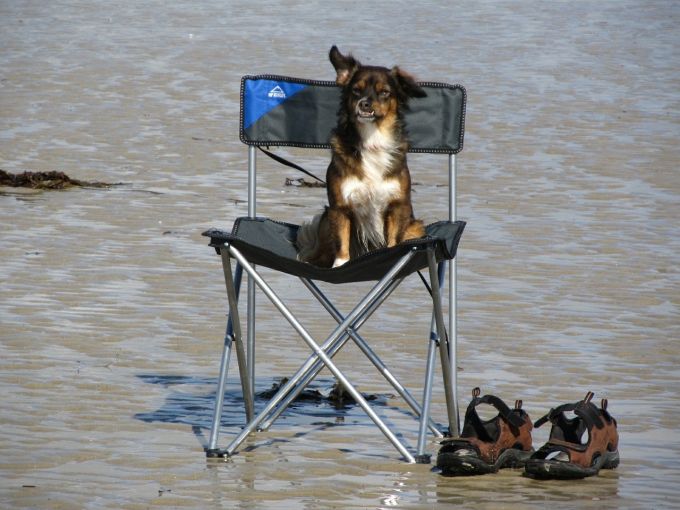
If you're going to be spending a lot of time at the campsite, you'll want a place to sit for meals and to relax in the evening. Camping chairs will fold up for easy transportation and storage.
3. Table
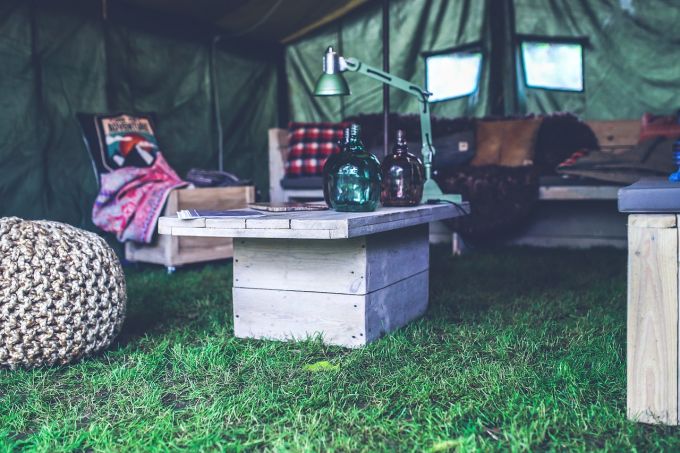
You might not think a table is necessary, but a fold up one can be essential for prepping food, cooking and eating.
4. Sleeping bags or camp beds
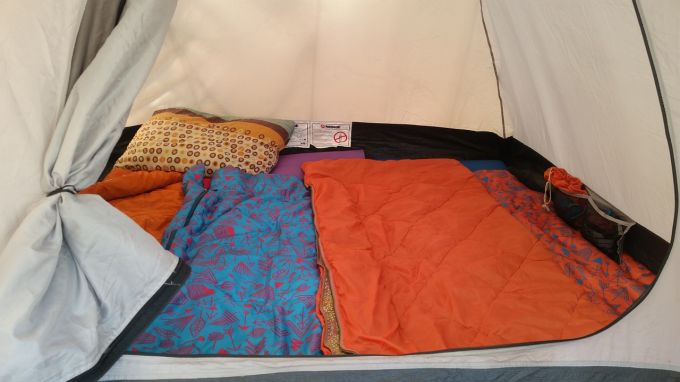
Depending on how much comfort you like, get yourself a sleeping bag, air mattress or camp bed. Don't forget a pillow too!
Yoga mats or foam squares can be a great way to cushion out the floor. Nights can be bitterly cold, so be sure to layer up.
5. Cool box
Store all your food in a cool box, using frozen meat and drinks as cool blocks. They'll defrost in time for your 2nd or 3rd day.
6. Cooking equipment
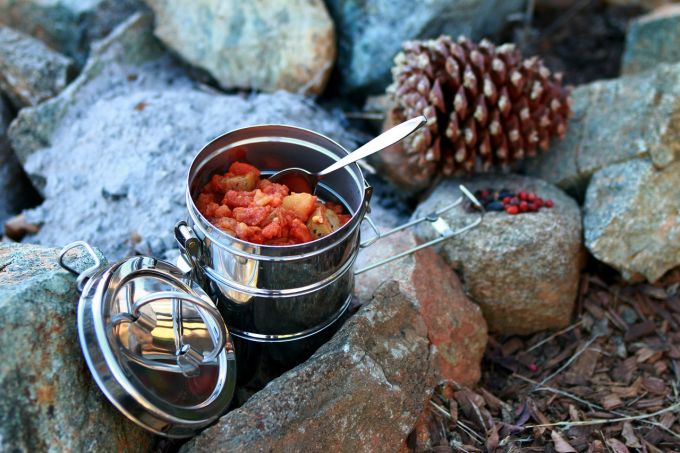
What you bring will depend on whether you're transporting your gear by car or backpack, and whether or not you have electricity. Here are some ideas:
- Stove / BBQ / Equipment to start an open fire
- Chopping board
- Kettle
- Pots, pans, and utensils
- Microwave - if you really like your creature comforts!
- Bowls, plates, cutlery, cups, and mugs
- Kitchen foil
- Kitchen roll
- Knives/ tin opener/ bottle opener
- Water container
- Skewers for roasting marshmallows!
- Matches
7. Plastic bags
Whether you've got dirty clothes and shoes that need to be kept separate or you're cleaning up your campsite and need to dispose of waste, some black sacks or plastic bags will never go amiss.
TOP TIP: Shower caps are perfect for wrapping up dirty shoes.
8. Cleaning equipment
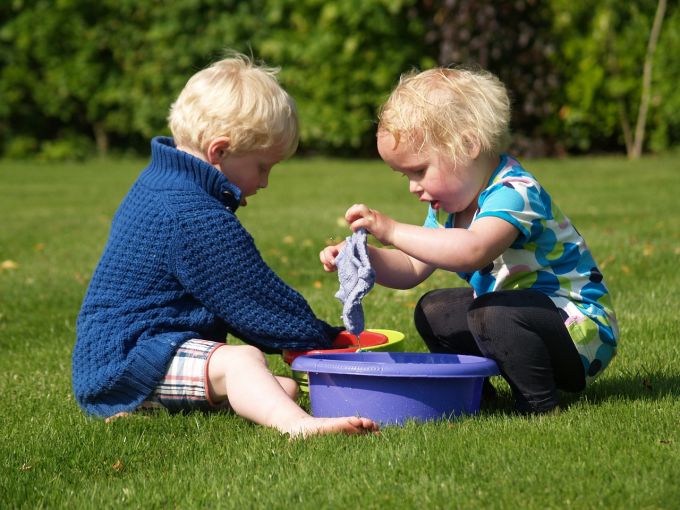
- Washing up bowl
- Sponges
- Dish soap
- Dustpan and brush - tent floors get covered in dirt, sand, dust, and crumbs!
- Baby wipes - they have plenty of unexpected uses
- Hand sanitizer
9. Light source
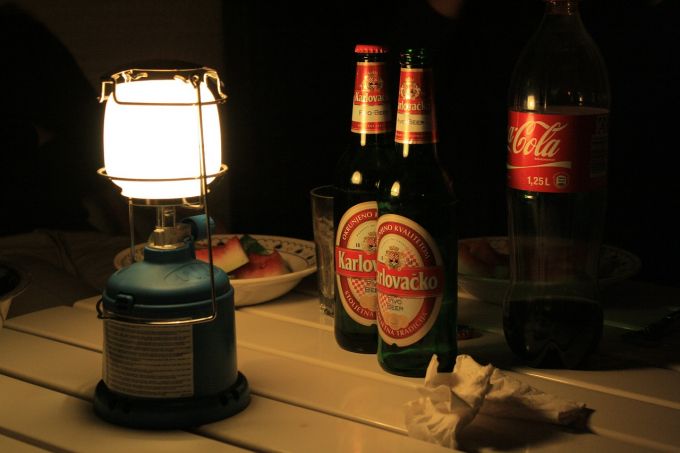
You'll need some kind of light source when it gets dark, especially if the campsite toilets are far away!
Pack a torch, and don't forget spare batteries. Alternatively, use light sources that operate on solar or wind-up energy.
TOP TIP: Make your own lamp by wrapping a headtorch around a large bottle of water with the light facing inwards.
10. Footwear and clothing
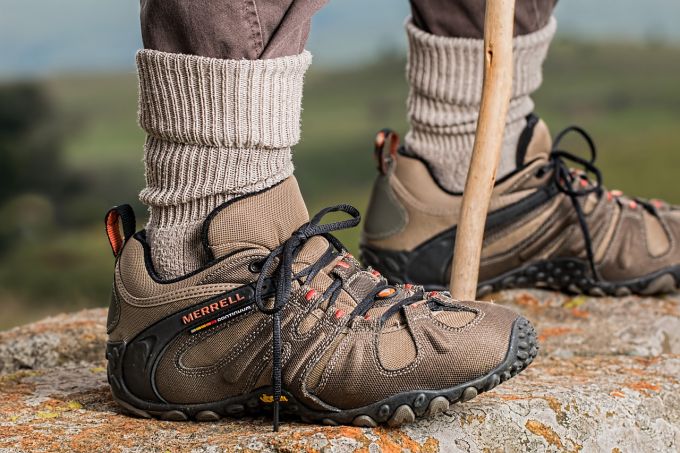
Even if the weather is looking good, always pack clothing suitable for all types of weather. Make sure you have appropriate footwear for all the activities you have planned.
TOP TIP: Flip flops are great for dodgy communal showers.
11. First aid kit
You never know when you'll need a first aid kit! Don't forget to pack any personal medications, sun cream, and insect repellant too.
12. Personal toiletries
Remember to pack things like shampoo, shower gel, toothpaste, toothbrush and anything else that you can't get by without. Always pack a spare toilet roll too - you just never know!
13. Large umbrella
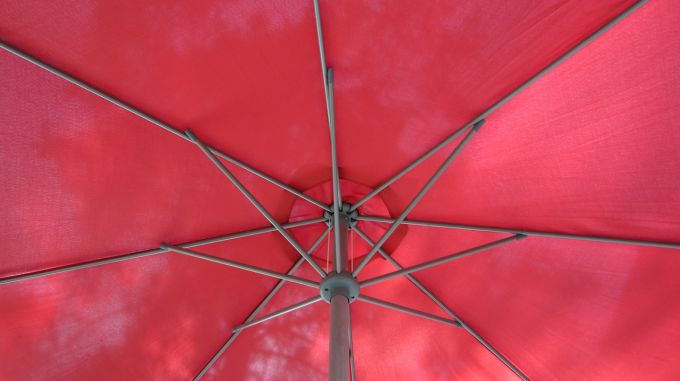
Perfect for battling storms and keeping the sunshine off. You should never be without an umbrella.
Do you know a great tip for camping that we've not covered here? We'd love to hear from you in the comments below!
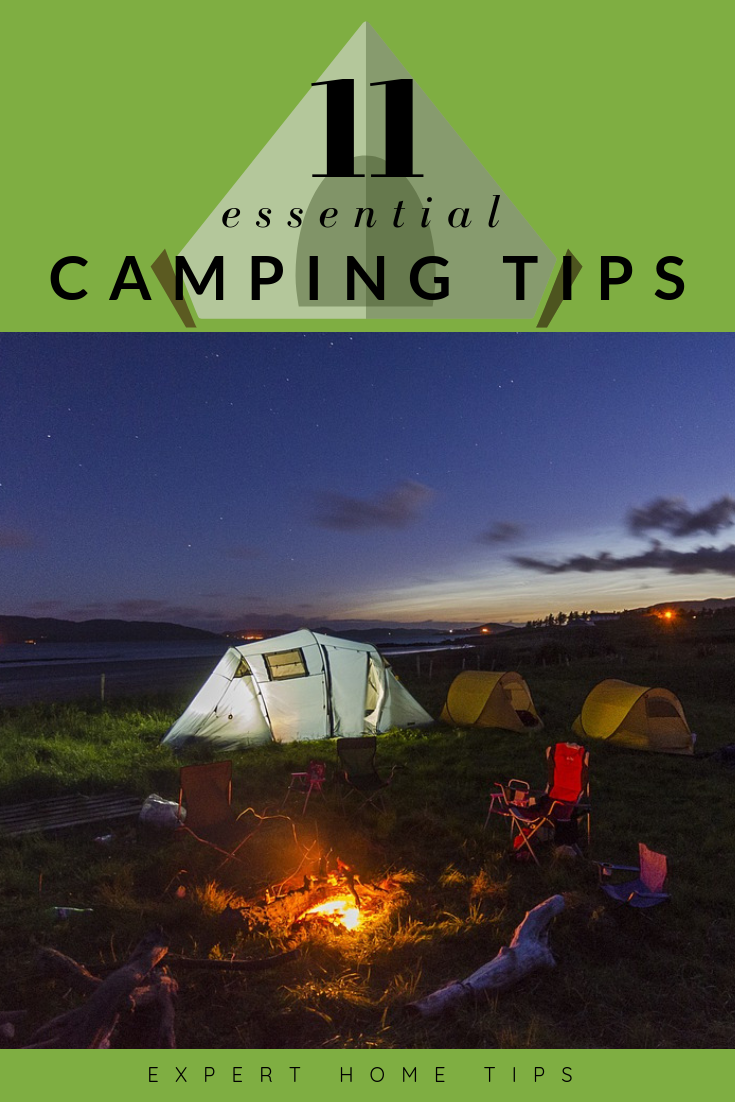
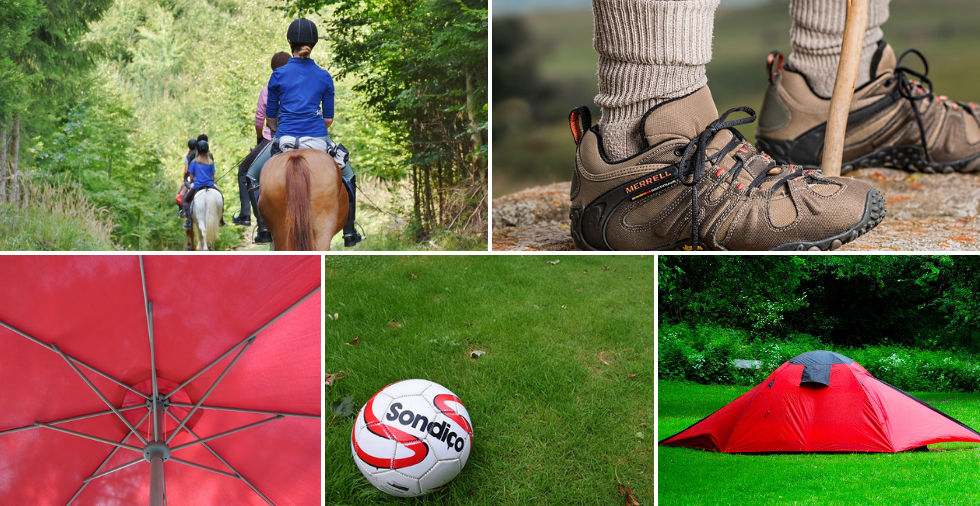
Leave a Reply